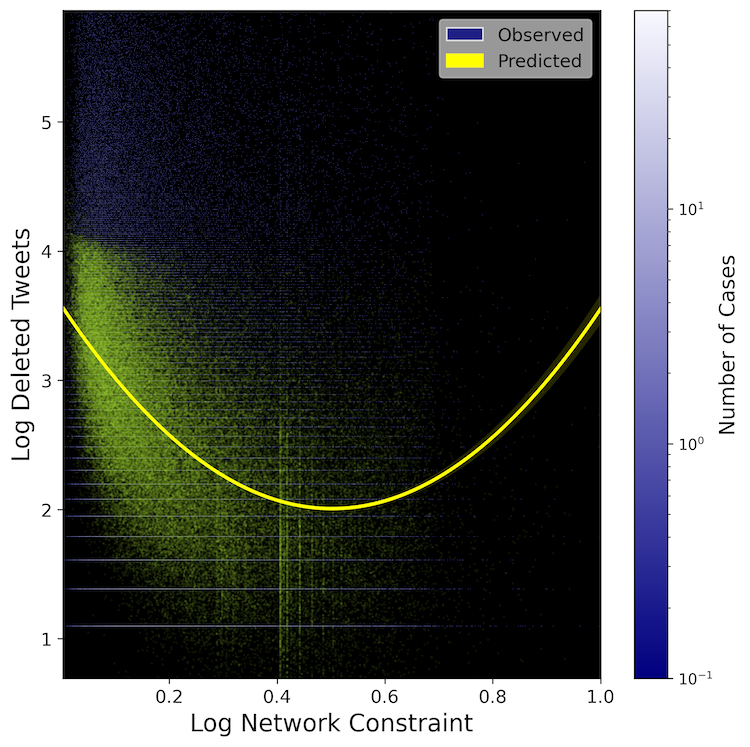Opinion Polarization

Abstract
How does online opinion polarization intensify? I develop an explanation that focuses on social media users’ post retraction practices to mitigate the relational constraints that are amplified in open, context-collapsed communication environments. The analysis of tweet deletions by 17M U.S. Twitter users showed that a user with highly diversified communication partners tended to delete more frequently, even more so when the network neighbors were ideologically distant from both the focal user and amongst themselves. These patterns were replicated in an agent-based computational model of opinion exchange only in completely connected networks that stylistically mimic the context-collapsed social media environment – simulated agents with diversified communication partners held more moderate opinions and withheld their opinions more frequently, resulting in exacerbated opinion polarization. Nevertheless, the model also showed that pre-existing opinion polarization can be attenuated and even reversed if the moderate opinions of the agents with diverse connections could be expressed more frequently in locally contextualized, hence structurally protected, communication environments.
Article link: working paper